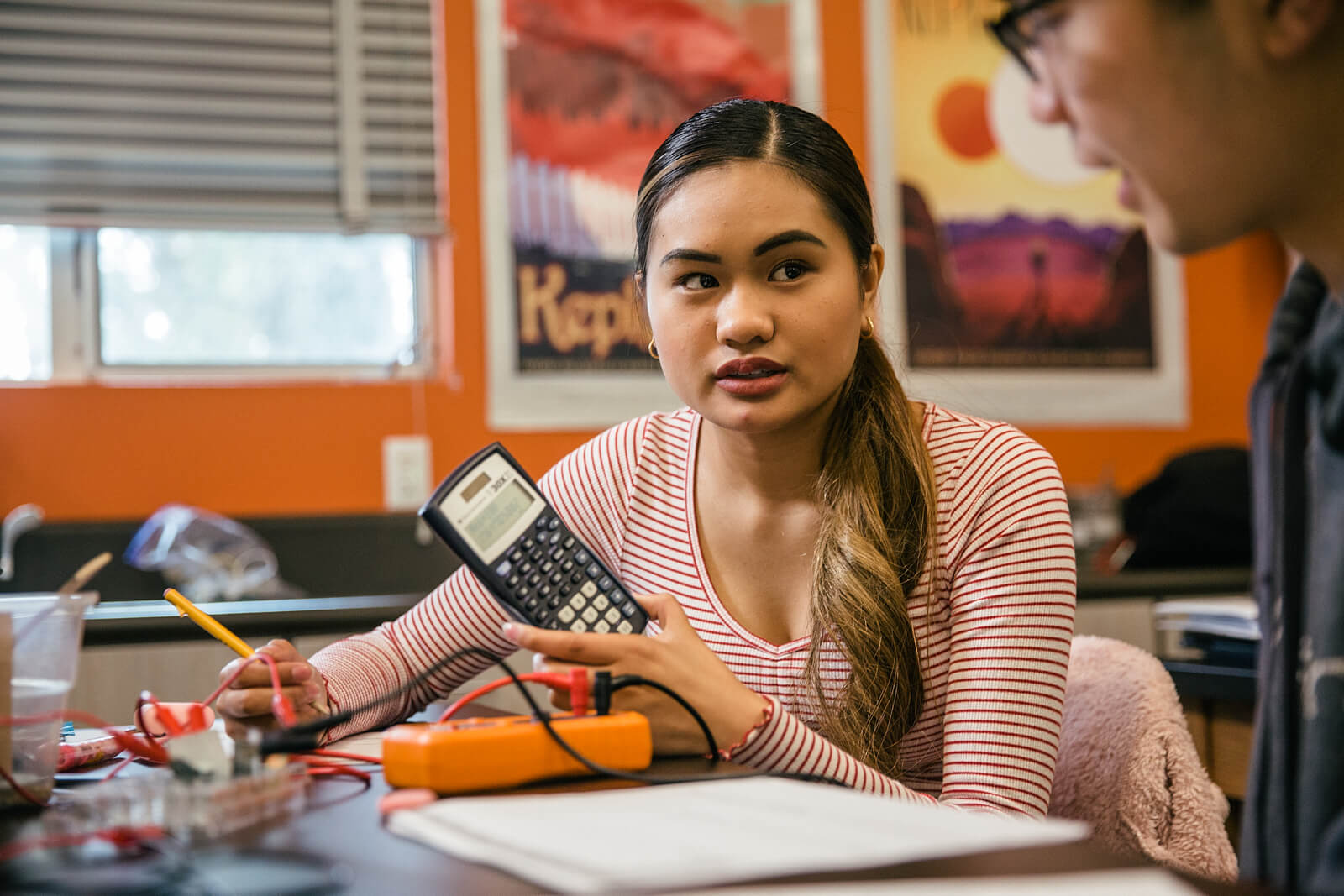Opportunities and Challenges of Modeling with Mathematics in Algebra 1
“Economic access and full citizenship depend crucially on math and science literacy.” Those words were written…

“Economic access and full citizenship depend crucially on math and science literacy.” Those words were written by Bob Moses more than 20 years ago in describing his evolution from a civil rights organizer to an advocate for mathematics education. Today, whether figuring out how many people with COVID will end up in hospitals or understanding how fees affect the price of a loan, quantitative reasoning and literacy in mathematics have never been more important. Those without these foundational skills are less likely to be full participants in the 21st century’s knowledge economy.
In the paper, “When Will I Use This? How About Today?”, renowned educator Dr. Jason Zimba explores how Algebra 1 offers both a challenge and an opportunity to improve high school mathematics teaching for all students. At XQ, we know students whose high schools don’t help them advance through algebra into higher-level math courses are less likely to get into college—and even those who do often wind up taking costly remedial courses. These students are disproportionately kids of color and from low-income communities. Such poor outcomes in math aren’t acceptable, and they’re why we believe in rethinking the high school experience with equity at the core—from mission and culture to teaching and learning.
Educators often say one solution to improving student success rates in Algebra 1 is to make the course feel more relevant to students. But that alone isn’t sufficient. As Zimba suggests, Algebra instruction often sacrifices the forest for the trees. Students spend too much time learning how to solve specific kinds of math problems rather than exploring the underlying mathematical concepts.
Zimba’s solution is for high schools to put more emphasis on mathematical modeling: “choosing and using appropriate mathematics and statistics to analyze empirical situations, to understand them better, and to improve decisions.” They should learn to confront new problems, find the mathematics to solve them, test their assumptions, and maybe even find multiple solutions. In the end, the student will have a deeper understanding of the concepts.
Project-based learning lends itself well to modeling and can also make algebra feel more relevant. But adopting project-based learning can be challenging, and takes a lot of time to plan and execute. A student can’t finish PBL units in a single class or textbook assignment. This is why Zimba says teachers who want to move in this direction need professional development.
XQ is developing a project-based curriculum for Algebra 1 (and Geometry). We are seeking to build learning experiences that are both genuinely engaging and authentic, and that elicit rigorous mathematics. In the past, we’ve found that well-intentioned efforts to make math lessons more engaging typically come at the expense of rigor.
Our curriculum is grounded in modeling. That’s because if you take a real-world situation and want to change, control, or improve it, very often you need to build a model to figure out what to do next.
“For example,” said Laurence Holt, XQ’s Entrepreneur in Residence, “if you are building a water xylophone, how much water do you need in each bottle to tune them to concert pitch? Modeling is the bridge between genuine interest and genuine math.”
When we talk about shifting course redesign like this, it’s for students and teachers alike, so we’re building the support educators need right into the curriculum.
We invite math teachers looking to incorporate project-based learning and modeling into their classrooms to join us for professional development seminars and opportunities to test programs in their classrooms. Learn more about XQ Math here.
If we’re going to rethink the high school system and design a new architecture, we need new building blocks. That starts with identifying the knowledge, skills, and attributes young people need to prepare for life after high school: to navigate the world of work and careers that are constantly in flux, to become strong contributors and problem-solvers, and to lead fulfilling and meaningful lives. Now that quantitative reasoning is so essential in sciences, the humanities, and daily life, teaching algebra with a deeper focus on mathematical modeling will help students be more successful in high school and set them up for success wherever they go next.
**Photo at top by Gary Askew
Related articles:
On the Shoulders of Giants: Algebra, Equity, and a Project-Based Approach to Math
What is Project-Based Learning?
Would There Be More “Math Kids” With a Project-Based Approach?
Challenges and Opportunities in Project-Based Mathematics
XQ Design Principle: Meaningful, Engaged Learning
Download the white paper, “When Will I Use This? How About Today?” by Dr. Jason Zimba here









